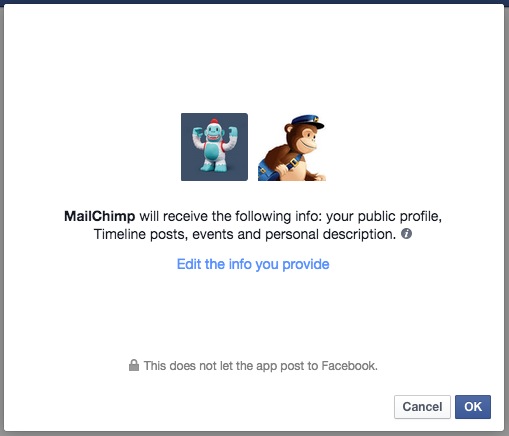Funny video, but this poor boy ran away in horror when he realized he was being watched. This is the effect that surveillance can have on human behavior.
As Glen Greenwald said during his TED talk on privacy, “The range of behavioral options that we consider when we think we’re being watched severely reduce.” He also mentions philosopher Jeremy Bentham, who designed the panopticon prison:
Jeremy Bentham concluded that when people experienced the fear of being watched all the time, it would be the “ultimate enforcer of obedience and compliance.”
The concept of the panopticon prison is very relevant today as many companies exploit social media to collect our personal data. But first, why are they even doing so?

(Source: Baynote)
In 2011, Acxiom, the largest data-brokering firm in the world, recorded a $1.1million sales from offering analytical services to their clients. Based on the data collected, they are able to deliver relevant offers and products and services that their clients will be interested in (Jason Morris and Ed Lavandera, 2016).
However, is there such a thing as collecting too much data? Based on the Singapore Personal Data Protection Act, data collected is legal as long as consent is given, and used appropriately. Then again, just because it is legal, does it mean it is ethical?

(Source: MailChimp)
As I have mentioned in Topic 2 reflections, Facebook makes it mandatory to exchange your personal information with third party applications in return for a free service. Many internet users do this often because they think that it is convenient and harmless.
Furthermore, E.L. Doctorow, argued that “it’s hard for people to assign a value to personal data when the full consequences of giving up that data are still unknown. How do you determine whether the privacy bargain is a fair one?”(Jason Morris and Ed Lavandera, 2016).
Which begs the question, what are the consequences? As we now know, big data is used to improve businesses and customer experience. However, the danger happens when a misuse of data occurs. “Data mining can actually open the doors to hacking, identity theft and stalking.”(Jason Morris and Ed Lavandera, 2016)
In conclusion, it is now the the norm for companies to collect big data through social media in order to improve businesses. However, companies should be more obvious in their efforts when prompting for data. We humans crave privacy. As we click on that consent button, not only we are just giving up personal information, but also the essence of our freedom as humans.
(416 words excluding photo captions)
References
- Greenwald, G. (2016). Transcript of “Why privacy matters”. [online] Ted.com. Available at: http://www.ted.com/talks/glenn_greenwald_why_privacy_matters/transcript?language=en#t-795180.
- Jason Morris and Ed Lavandera, C. (2016). Why big companies buy, sell your data – CNN.com. [online] CNN. Available at: http://edition.cnn.com/2012/08/23/tech/web/big-data-acxiom/.
- Pdpc.gov.sg. (2016). Personal Data Protection Act Overview. [online] Available at: https://www.pdpc.gov.sg/legislation-and-guidelines/overview.

Greetings ‘K’,
I noticed that you deployed pretty relevant videos to substantiate the ethical issue of surveillance from social media.
Here are some comments. You mentioned,” … many companies exploit social media to collect our personal data. But first, why are they even doing so?” After researching in topic 3, I think we can comprehend the intentions of companies in collecting our personal data. However, if you were disagreeing the companies’ behaviours with the given rhetoric question, I would encourage you to substantiate the point with relevant evidences… For instance, Every time we use a shopping card, a retail store collects data about our consumer spending habits. Credit card companies can create even larger profiles of our shopping behaviours. The outcome is such that our privacy is invaded without authorisation. Furthermore, with the concept of Panopticon (as you have mentioned), Oscar Gandy (1993) agrees that our privacy is invaded. Therefore, surveillance is indeed an existing ethical issue that should be deemed significant. What’s your view? (165 words)
-Jim
LikeLike